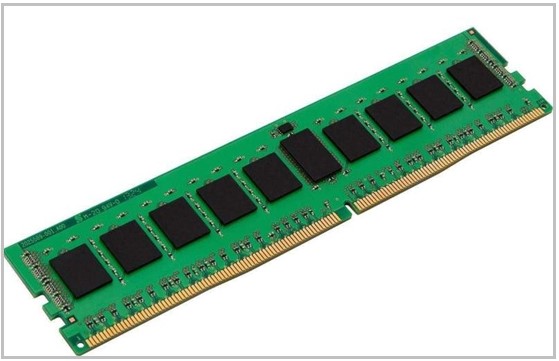ECC vs non-ECC: what’s the difference? Before answering this question, you need to have an overall understanding of the two memory. Then find the difference between ECC and non-ECC. Now, explore these contents with MiniTool.
What Is ECC
Error Correction Code (ECC) memory, a kind of computer data storage, can detect and correct n-bit data corruption. That is to say the ECC memory can protect a memory system from being affected by bit errors. The ECC memory is often found on workstations and servers. ECC memory usually is used in computers where data corruption cannot be tolerated in any cases.

-image from hp.com
ECC memory has 8 extra bits to support the ECC, which allows system to detect errors. To get the ECC memory actively supported, the system to be used and all of the memory in the system must support ECC. You can know if you can use ECC by viewing the system board specifications.
What Is Non-ECC
Non-ECC is also called non-parity. It doesn’t have error-detecting feature. Any chip count cannot be divided by three or five is a non-parity memory module.

-image from kingston.com
After obtaining a rough understanding of the two memory, it’s time to explore the differences between them. Now, move to the next section and continue reading.
Recommended article: RAM vs ROM: The Key Differences Between the Two Memory
ECC VS Non-ECC: Reliability
Though ECC memory is theoretically more stable and reliable compared with traditional RAM, the theory doesn’t match up with the fact. The failure rate of non-ECC memory is higher than that of ECC in the past 3 years.
The main cause for non-ECC memory failure are memory errors, incorrect size/speed, and misc. Reboot during the memory test is the primary reason for the ECC memory failure. What you need to note is that using ECC can reduce your computer’s performance by about 2%.
Besides, not every computer can utilize ECC memory. Though most server and workstation motherboards require ECC RAM, the majority of desktop systems either work at all with ECC memory or the ECC functionality is disabled.
ECC VS Non-ECC: Speed
According to tests, ECC RAM is slightly slower than non-ECC RAM. As claimed by many memory manufacturers, ECC memory is 2% slower than standard RAM because the additional time it takes for the system to check for any memory errors.
After testing the comparable CPUs (Intel Core i7 4771 3.5GHz Quad Core 8MB versus Intel Xeon E3-1275 V3 3.5GHZ Quad Core 8MB), we found that the estimate value 2% is roughly correct.
ECC VS Non-ECC: Price
Due to the additional memory chip and the inherently more complicated nature of ECC RAM, it charges higher than non-ECC memory. The amount varies according to the size of the memory stick. You should expect to pay about 10-20% more money when buying ECC memory. The larger the stick, the more costs you need to pay.
The above are the main differences between ECC and non-ECC memory. ECC vs non-ECC: which one is better? There’s no absolute answer. You can choose a suitable one based on the condition of your computer.

User Comments :